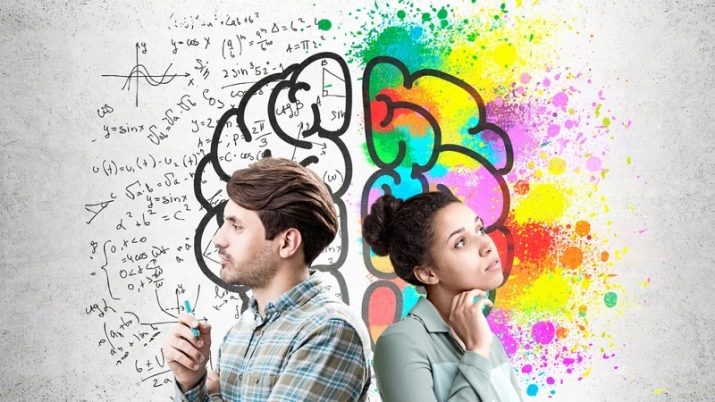Think what you say and say what you think. Both that, and another we do thanks to semantic memory. And depending on how it is developed, we can stop in time in our judgments or, conversely, convince anyone that we are right.
What it is?
The definition comes from the Greek semantikos, which translates as “denoting”. Semantic memory stores our knowledge of words, the rules of etiquette and behavior, the concept of a particular object, action and so on. First of all, we need it in order to use language and speech. In general, the concept of semantic memory in psychology began to be widely used a little more than half a century ago.
In the late sixties, this term was introduced into science by an American psychologist Michael Ross Quillian. And in 1972, his Canadian colleague with Estonian roots, Endel Tulving, isolated from semantic memory, which, according to his theory, is responsible for storing data, another type is episodic memory, which stores memories of events.

But anyway this is a certain chain of knowledge, which is formed from words, any other verbal characters, concepts about meanings and their relationships, as well as our ability to apply all this in life. That is, in our “piggy bank” called “semantic memory” not only words and sentences are stored, but also images of these words, an idea about them, concepts about entire life situations, for example, the basics of etiquette or knowledge of elementary safety rules, an understanding of our location (maps and diagrams are “stacked” next to words about them). In this way, it is semantic memory that affects the way we understand one or another event in our life in particular and in society as a whole, allows us to find or not find mutual understanding with other people.
In psychology, it is believed that the semantic load is distributed as follows. Our concepts about objects, plants, animals, buildings, that is, about everything that we can see, are stored in the “visual department”. Instrument skills, ability to perform any actions live in another, motor, part of the brain. It’s quite clear why some scholars consider semantic memory autobiographical. After all, each of us can have our own personal idea of anything, and this is due to what knowledge, concepts, actions we remembered, possibly even in childhood.
When resorting to the help of this memory, we often don’t even think about it, although it works hard when we are having a conversation, reading, or solving a problem. After all, everyone knows that twice two - four, there is nothing to think about.

The difference from episodic
First there was a word, and then a deed. So it is with memory. According to some studies, semantic memory appears in our childhood, when we just learn some facts, then, gaining our own life experience, we begin to “put aside” it in episodic memory. In any case, the development of both of them depends on many factors, thanks to which we can accept, process and reproduce information. And here again it is worth paying attention to the separation of semantic and episodic memory.
- Semantic is ready to receive new knowledge. But already accumulated knowledge, as well as our attitude towards them, practically does not change. Everyone knows that in the sea the water is salty, and the stars in the sky.
- Episodic memory stores data about what we experienced ourselves or saw with our own eyes. Same starfall or star performance.
Meanwhile one cannot exist without the other. Remembering the last concert, we will first turn to the semantic part of our memory, it will tell us common words and phrases that describe what we saw, and then we will connect an episodic one that will clarify our personal attitude to what happened, try to recreate the picture we need, as if it is happening right now . But do not forget that it, in contrast to the semantic, is highly susceptible to change. Any of our new knowledge can affect the attitude towards what is happening. Yesterday you were delighted with this artist, and today you learned that he is a criminal, it is unlikely that next time you will talk about how he sang, with the same aspiration and delight as before.
But data stored in semantic memory is not subject to change. The earth is round, the sky is blue, the sea is deep, the dog barks, the caravan goes on. Semantic memory has one more feature.
More often than not, she goes from general to particular. For example, with the word “fruit” she gives out the following - “sweet”, “apple”. Although the inhabitants of Asian countries, most likely, instead of the fruit from our garden, an image of mango appeared, for example.

Forgetting in semantic memory
Just as semantic and episodic memories receive information in different ways, so they each lose it in their own way.
- As for the first, then problems with it basically boil down to what is called "spinning on the tongue." We know exactly what we want to say, but we just can’t remember the right word, concept, name. Or we definitely know the name of the artist, but we just can’t remember to say it out loud. But as soon as we give the name of his first wife, the name of the first song, it is worth sounding a few notes from his hit, then the name and surname of the star emerge from the subcortex. The same thing with celestial stars - you forgot something from the lesson of astronomy, but only thought about how you walked under the moon, and immediately remembered the information you need at the moment.
- But episodic memory sometimes, without our permission, erases certain memories from our lives or, on the contrary, stores information about an event that we should have forgotten a long time ago. The answer to the question why this happens is sought by the brightest minds of mankind. Only one thing is known for sure - episodic memory is mobile, sometimes it gives us memories from distant childhood, sometimes it cannot find data about the last month.
All this is purely individual and depends on the value and importance of the moment, the abilities of our memory, and of all its types, and much more.












